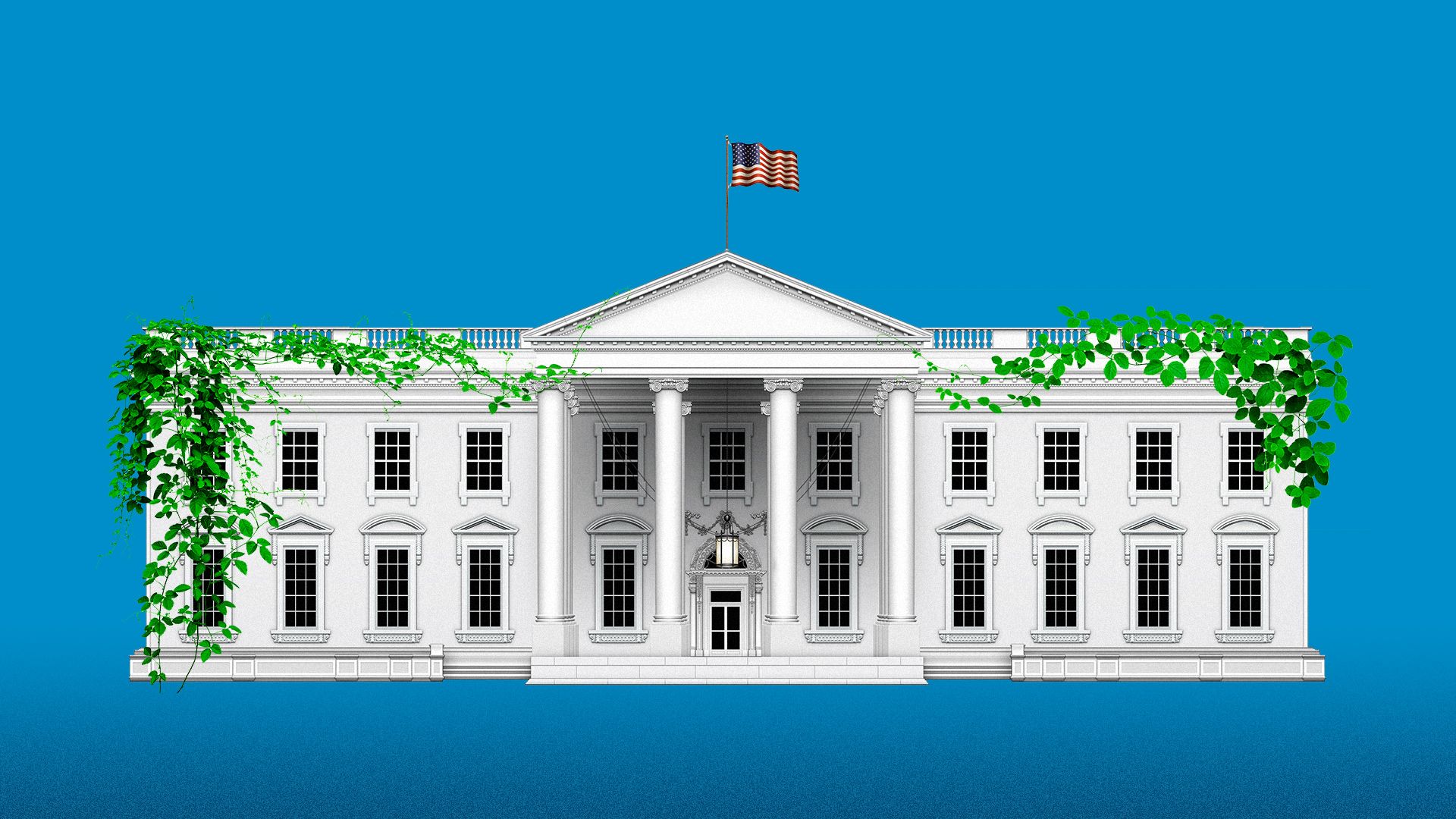White House claims climate credibility before summit

- Andrew Freedman, author ofAxios Generate

Illustration: Aïda Amer/Axios
The White House is making the case that its climate moves to date create enough credibility to press other nations to bolster their commitments at an upcoming summit.
Where it stands: Congress has barely begun digesting President Biden's proposed $2.2 trillion infrastructure package that's stuffed with the biggest clean energy investments any president has put forward. But a top official hinted Tuesday that it would rely on all the climate policy moves it has set into motion when Biden convenes world leaders for a virtual White House climate summit on April 22-23.
- "We've taken robust climate action," White House deputy climate advisor Ali Zaidi told Axios in an interview. "I think that's being understood and received as a signal of this president's commitment and credibility on the climate issue."
Why it matters: The administration is viewing the summit as a way to showcase the return of U.S. leadership on climate change after former President Trump abandoned the Paris Agreement (which Biden re-entered) and unraveled Obama-era rules and policies.
Be smart: Although the infrastructure package will not have advanced far by the time the summit arrives, the administration can still point to it as intended policy, as well as at recently implemented steps to credibly urge other countries to cut emissions significantly by 2030.
- "From literally day one the president has been animating federal action" on climate change, Zaidi said.
What's next: The White House intends to put forward a new emissions target, called a Nationally Determined Contribution, or NDC, detailing its 2030 commitments before the summit.
- Per Zaidi, the administration has been engaged in an interagency "bottom up analytical process" to determine how ambitious the U.S. 2030 target can be, and that this has found the tools now exist "to rapidly address climate change."
- He cited recent technological developments that are driving down costs in batteries, solar panels and other parts of a renewable energy economy.
Between the lines: On the infrastructure package, Zaidi said they see possibilities for bipartisan support for the climate provisions of the infrastructure proposal based on public opinion and some GOP backing on issues such as electrical grid modernization and the need for more resilience.
- "This plan really I think resonates across the breadth of the American people who know intuitively that we are overdue to invest in this critical infrastructure," Zaidi said.
What we're watching: The White House declined to comment on its legislative strategy on the climate package specifically. Press secretary Jen Psaki said the choice of whether to use the reconciliation process, which could allow Democrats to pass the mammoth bill with a simple majority, is up to the Senate leadership.
- "Right now, less than a week after he announced the American Jobs Plan, our focus is on engaging with Democrats and Republicans, with staff, with committee staff, inviting members to the White House next week," Psaki said.
- Energy Secretary Jennifer Granholm signaled over the weekend that Democrats could look to move the bill with no GOP support using the budget reconciliation process.
- However, some clean energy proposals could attract votes across the aisle. For instance, Sen. Susan Collins (R-Maine) has previously backed expanding tax credits for buying electric cars.